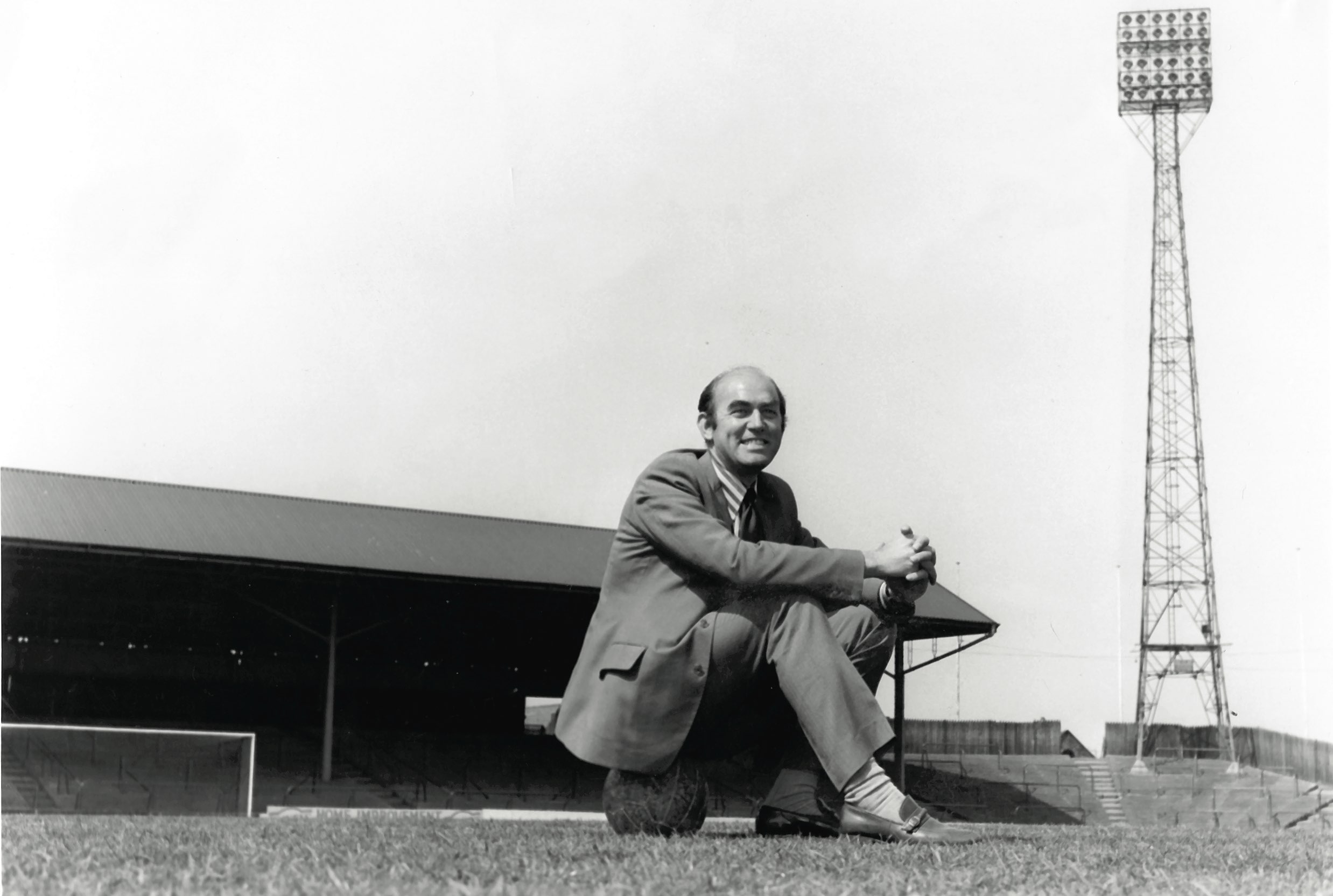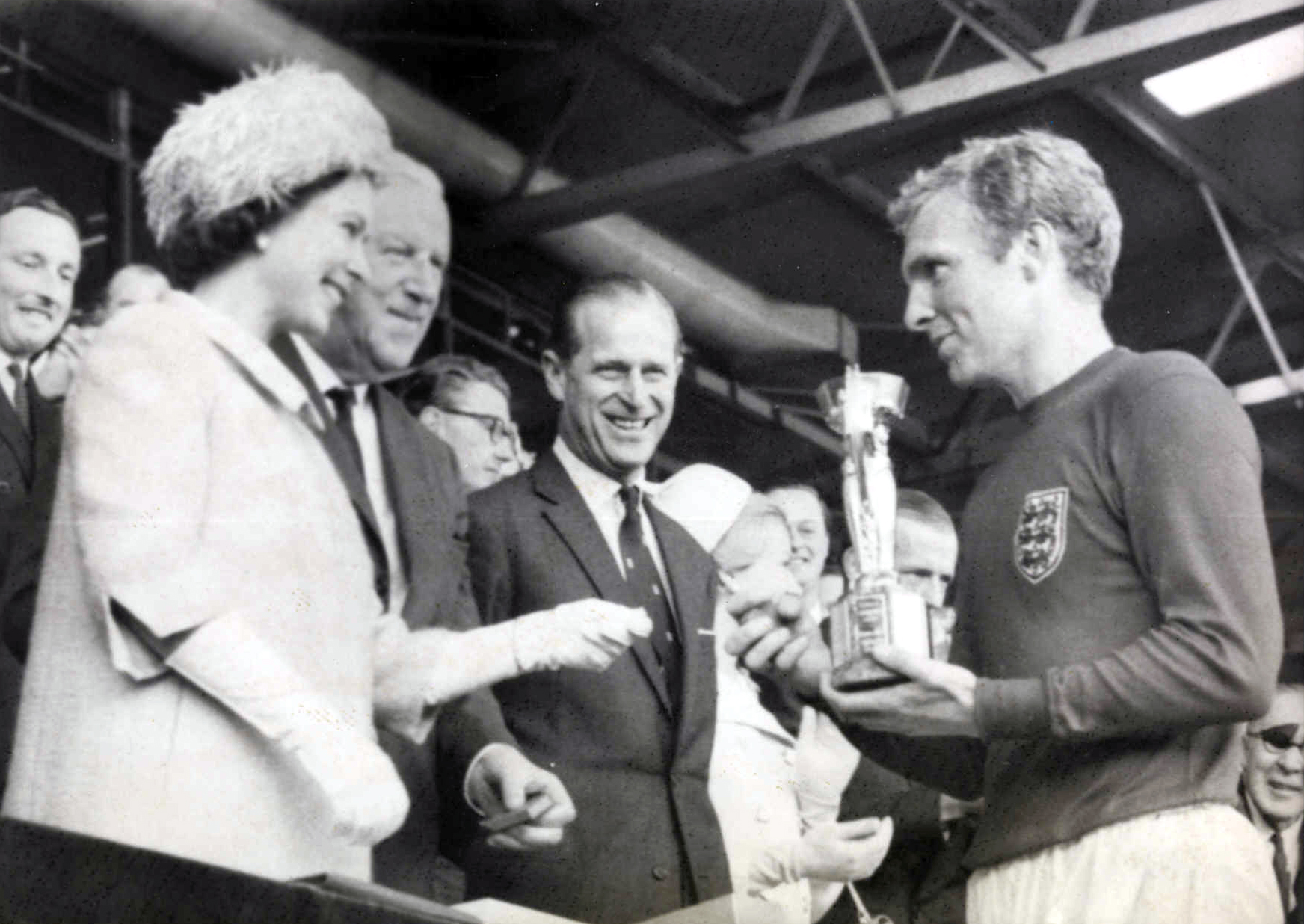The date is 30 July 1966, a day that will be forever remembered in England as the day football came home. Crowds flood the streets of London as people line the streets, hoping to get a glimpse of the coach housing the winning players and management team. As the celebrations become increasingly frenetic a practicing GP and a man who admits that cricket is actually his sport sits with the world champions on the coach, behind manager Alf Ramsey, whom he casually chats to on a day that will go down in the nation’s history.
Dr Neil Phillips found his way into the world of football medicine after a fateful encounter with Walter Winterbottom, the first England manager. Impressed by his aptitude for sports medicine after he treated a member of the England under-23 team, Winterbottom sent him to do an appraisal of the FA medical course incognito. After Phillips handed in the report he assumed that was the end of it, but while working in his surgery in 1962 he recalls that he received a call from a man whose name he immediately recognized: “My name is Ramsey, Alf Ramsey. I’m the manager of the England national football team. We haven’t met but I’ve heard a lot about you and I wonder if you’d be a doctor to the England under-23 team?” Phillips accepted and when he finally met Ramsey they “got on like a house on fire.”
It wasn’t all sweetness and light, though, as the game was undergoing a dramatic change. “The environment at that time surrounding the England football team was hostile to say the least,” Phillips explains. “Alf Ramsey was the first manager of the England team to pick it. Up until the time Alf Ramsey was appointed the team was picked by the FA directors.” Ramsey’s determination in having total control over his team had created an atmosphere of tension: “What made Alf’s appointment so hostile was that he said, ‘I pick the team, nobody else, and I don’t want the Football Association directors involved in the picking of the team’”, recalls Phillips.
This change meant that directors who had become accustomed to five-star treatment lost all their luxuries, power, and, crucially for Phillips, they wouldn’t agree to the appointment of doctors to the team. Ramsey was honest with the doctor, saying: “Look, they don’t want you, but I want you. I want you to come and be part of the team.” Because of the hostility surrounding the squad, Phillips discovered he wouldn’t be paid, but Ramsey insisted on his instatement. Phillips accepted and became a crucial member of England’s backroom staff from 1962 to 1974.

Juggling a full-time job as a GP, Phillips took time off as holiday to be with the team during their preparations for the tournament and spent two weeks with the players. Eager to achieve total unity within his team, Ramsey encouraged his backroom staff to follow the players’ schedule exactly, “I had to do everything the players did. If they went to the pictures, I went to the pictures, if they went for a walk, I went for a walk.” This created a solid close-knit squad, and when captain Bobby Moore was asked about the doctor at a press conference, he replied, “The doc? He’s just part of the squad.”
Ramsey was supremely confident in his team and believed they would win the World Cup. Phillips recalls that before the tournament even began, “Alf said to Wilf McGuinness [the former Manchester United player and member of England’s backroom staff] and I, ‘When we get to the final, I’ll give you a ring and invite you both down.’ We said, ‘That’ll never happen.’ And he said, ‘Don’t you worry, I will send for you and you’ll come down to the final.’”
Phillips’ doubts were unfounded as the England team secured a place in the final at Wembley. Just like Ramsey had promised, Phillips was going to be there for the big day. “When England got to the final, I got a telephone call from Alf saying, ‘We’ve booked a room for you in London, we want you to come down a few days before, and we’ve booked a room for your wife to come down for the celebration after we’ve won it.’”
The GP travelled to London before the final and stayed in Hendon Hall Hotel with the team. On the morning of the match he met with the players and they travelled together to the stadium by coach. Phillips recalls the electrified mood: “The whole atmosphere of the country on that day was amazing. Going in the coach to Wembley, it was absolutely jam-packed with people on both sides of the road all the way to the stadium.” Phillips watched in awe as hundreds of people cheered the coach as it passed from Hendon to Wembley Stadium.
The equipment at Wembley was a far cry from what footballers and backroom staff enjoy today. “There was no medical room”, Phillips explains. “We used to have a card table and put the instruments out on the card table in case anyone needed to be stitched up.” Phillips recalls one particular instance while preparing the team for the World Cup, where the team didn’t even have a medical bag and he had to go to a local chemists shop to buy plasters and bandages for the team.
On the day of the final, Phillips accompanied the players onto the pitch before the match, helping them prepare them for the biggest game of their lives. When the players were ready to go out to start the match, Ramsey gave Phillips a ticket for the director’s box and he took his place next to Winterbottom as the game began.
During half-time, Phillips left his seat and went into the dressing room where he remembers that Ramsey was calm. “The dressing rooms even at half-time were quiet, peaceful places”, he said. “I’ve never ever known him [Ramsey] to lose his temper […] he was quiet and placid and he would say, ‘Sit yourself down and we’ll have a chat in a minute.’” Even during the World Cup final, the famous manager was business as usual.
After two goals in extra time – one of them controversial – a 4-2 England win was secured. Amid exuberant celebrations on the pitch, Phillips went down to the dressing room and was reunited with the euphoric team. About 45 minutes after the win he remembers that, “Alan Ball turned to Nobby Stiles and said, ‘Hey Nobby, we’ve forgotten – we get a bonus!’ The bonus for the England team was £1,000, but only for those players who played in the final. There were 22 players in the final squad who had been with the England team the whole way and some were going to get nothing. So the team who played had a quick meeting and said they were going to give their bonus to the rest of the squad. So instead of getting £1,000 each, they got £500. The doctors, of course, got nothing.

“After we won, we went from the hotel into London to a banquet in the Royal Garden Hotel Kensington. I’ve never seen so many people on a road all the way to Kensington,” remembers Phillips. The entire country was gripped by a sense of euphoria, and London was in the centre of it all. “People were at the side of the roads, what seemed like hundreds with dustbin lids, banging the dustbin lids as we went along the road. It was absolutely phenomenal; it really was an experience you would never ever forget. I was sitting immediately behind Alf Ramsey in the coach and I leaned forward to Alf, put my hand on his shoulder and said, “What do we do next? We can’t beat this!” And Alf said, ‘We have to go to Mexico and win it there.’ He was already thinking about four years’ time.”
After the banquet, the players and management were told that we could go to various places in London free of charge where they would be welcomed as guests. So the legendary team finally split up, with Phillips recalling how the defender Jack Charlton “wanted to go and visit a friend somewhere in London and he was found the following morning in the garden of his friend’s house.”
As for Phillips, he paired up with the trainer Les Cocker and went to the Playboy Club in Mayfair, which had been opened that same year by Hugh Hefner. “Les Cocker and I had never been anywhere near the Bunny Club in our lives before. As we entered, Les Cocker said to me: ‘This is a day I want to remember for the rest of my life, I want to remember every minute of it. So I’m only going to drink orange squash, and when I wake up in the morning I’ll be able to recall every minute of this day.’” It was an advice the GP followed and ensured that when he woke up the next day every memory from the day England took on the best in the world and won was clear as day in his head.
Doctor To The Word Champions, Neil Phillips’ autobiography, is published by Trafford Publishing and is available on their website or through Amazon.
This article originally appeared in All About History 14. Buy the latest issue of All About History here or subscribe now from £13.